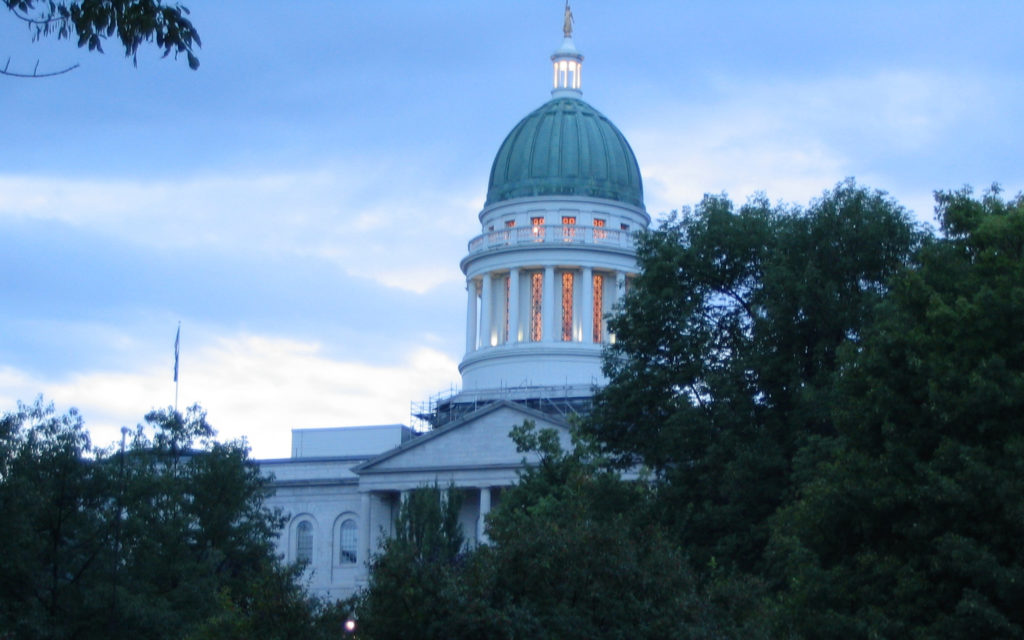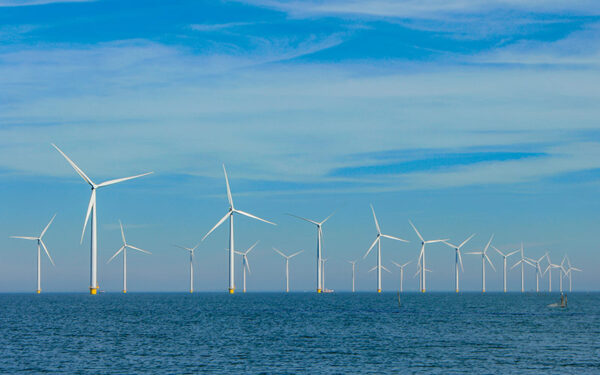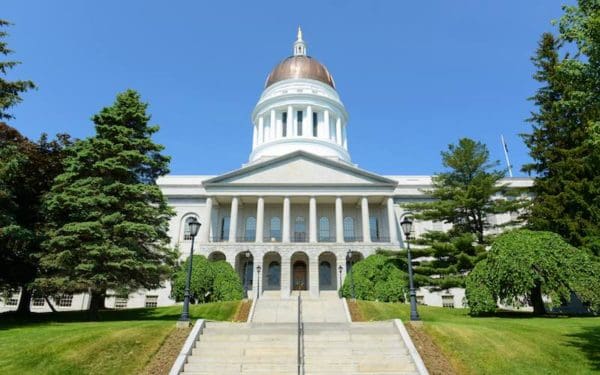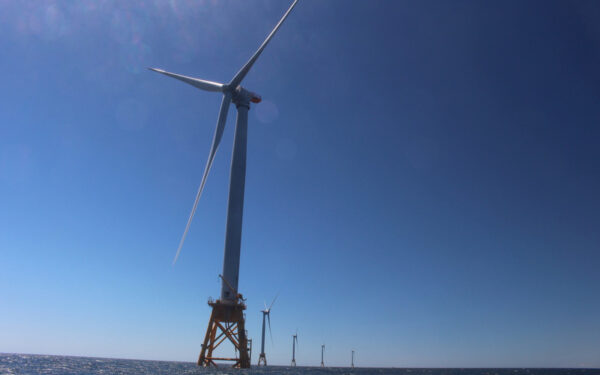
Maine has the chance to work towards life-saving climate action. Photo Credit: Ken Lund
As the Trump administration scorns its responsibility to tackle climate change, it becomes ever more critical for state and local governments to step up. And Maine is poised to do just that. With Governor Janet Mills now at the helm and the Legislature considering a variety of promising bills, this year holds exciting potential for the state to make real progress at last.
CLF’s top priority this session is an important climate bill, An Act to Limit Greenhouse Gas Pollution and Effectively Use Maine’s Natural Resources (LD 797). This bill would ensure that Maine takes action to cut carbon pollution and fight climate change, protecting families and businesses in the state from the worst effects of climate catastrophe while growing Maine’s economy.
Maine Must Do Its Part to Tackle Climate Change
Before Governor LePage took office eight years ago, Maine had been a frontrunner on climate change, passing climate laws and developing a climate action plan. Through these measures we demonstrated that it’s possible to successfully reduce carbon pollution while growing the economy. With Governor Mills now leading the charge, it’s time to reestablish Maine as a leader by creating a long-term framework to double down on those dual objectives.
This climate bill would do just that by ensuring that Maine cuts carbon pollution to levels in line with prevailing science, which will avert the worst impacts of climate disruption as well as create jobs and stimulate the economy.
This climate bill has three primary components:
- It updates and strengthens the state’s existing carbon pollution goals based on recent scientific reports that tell us where we need to be over the course of the next 30 years to avoid climate catastrophe.
- It directs the study of various approaches for achieving those levels and creates a transparent, open, and inclusive process to assess the best ways for Maine to make progress. This process would give everyone, from farmers to fishermen, a voice in crafting the state’s path forward. In developing an updated climate action plan, the State would need to consider how best to strengthen the economy and maximize benefits for all Mainers.
- It puts Maine’s Department of Environmental Protection in charge of implementing the plan to achieve the carbon pollution goals – because a plan can only get the state so far without some teeth.
Tackling Climate Change Presents Opportunities for Mainers
Cutting carbon pollution means weaning ourselves off of fossil fuels. That will require taking a hard look at our how we heat and power our homes and businesses, how we fuel our cars and trucks, and how we manage our lands – and then asking: how can we do it better? This bill leaves it up to Mainers and the state to figure out the best path forward, and there are many exciting opportunities that come with considering modern, clean alternatives to fossil fuels.
For example, a strong climate plan will decrease our reliance on dirty fuel imports for electricity. This will make us more energy independent and less tied to fuels like fracked gas that have volatile prices. It will also lead to new jobs in Maine in energy efficiency, battery storage, and renewable energy – including solar. Investing in these fields promises to create not just jobs, but good jobs, the sort that attract and keep young, innovative people in the state.
Another interesting prospect is better land management practices for Maine’s forest and farm industries. The bill encourages the use of natural solutions to store carbon (known as carbon sequestration). Landowners could use specific practices to maximize how much carbon they’re capturing, creating new income streams for some Maine industries being hit hard by climate change.
We Can’t Delay. We Must Act on Climate Now
I don’t need to tell you that climate change is here now, and its effects are already costing us millions of dollars each year. These costs will only grow, and the health and displacement consequences will be felt most severely by the least advantaged among us.
The temperature in the Gulf of Maine is rising while its waters become more acidic, with deadly consequences for species that are central to our fishing industries. This is bad news not only for fishermen, but also for tourist businesses like whale watching, fishing guides, and seafood restaurants.
Meanwhile, rising temperatures and heat waves, intense rains, increased pests, and more regular droughts threaten our traditional crops and the livelihoods of Maine’s farmers. Speaking of pests, the increase in ticks is a double whammy. They are decimating our iconic moose population (which attracts hunters and their dollars to the state), while making it increasingly hazardous for any of us to spend time in the woods. And in the winters, less snow and more rain spell disaster for our ski resorts and snowmobile businesses.
What’s more, rising sea levels and stronger storm surges threaten Mainers’ property. We are already facing smaller beaches and more coastal erosion. Increased flooding also damages roads and structures, leading to soaring maintenance and replacement costs for coastal communities. As a result, property values are dropping. Projected sea level rise could even make some Maine communities uninhabitable in the not-too-distant future.
Finally, climate change is already harming Mainers’ health. The rise in the number of ticks has led to sharp spikes in Lyme disease. Longer, warmer seasons mean more pollen, more allergies, and heavier smog. We all suffer from these impacts on Maine’s air quality, but the consequences are especially serious for those living with asthma and other respiratory illnesses.
You Can Help Push Maine Forward on Climate Action
Your voice matters. You, your friends, and your neighbors play a critical role in telling our state legislators that Mainers demand bold action on climate change TODAY. Here’s how you can take action:
- First and foremost, a public hearing on the bill is scheduled for March 13 at 10 a.m. before the committee on Environment and Natural Resources. This is a unique opportunity for face time with your legislators, and we encourage you to show up if you can. The more Mainers who are there, the better we convey the message of urgency to our representatives.
- Second, contacting your legislators directly, either by phone or email, is another great way to get your message across. You can learn who your representatives are and how to contact them here, and here for your senators.
Whichever method you prefer, the key takeaway is that our representatives need to hear from you. You can also join CLF’s mailing list, and we’ll make sure you get up-to-date details about the bill’s progress and fresh talking points as things progress.
I look forward to seeing you at the State House on March 13, and thank you for doing your part to make sure that Maine will act on climate now!




